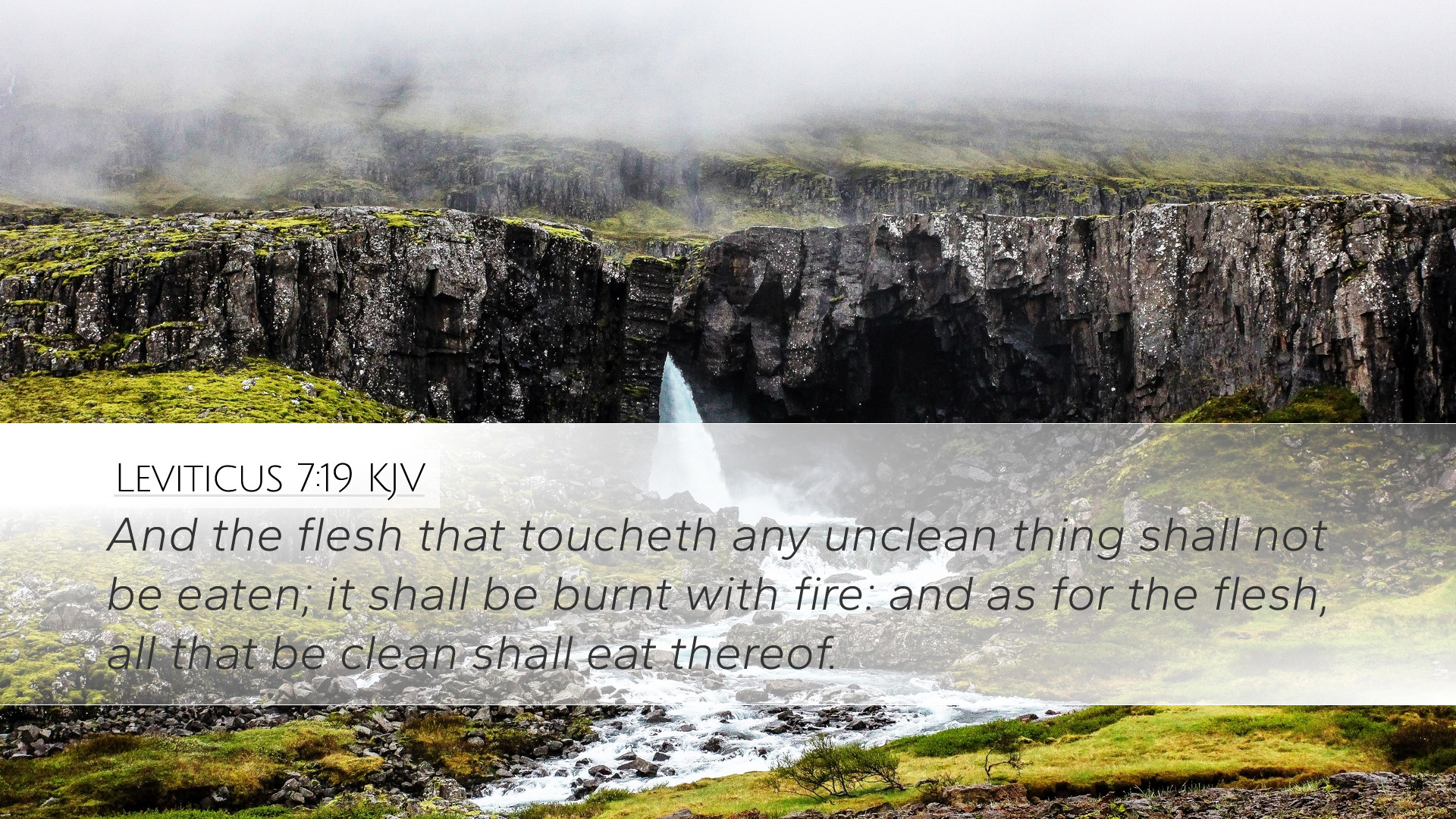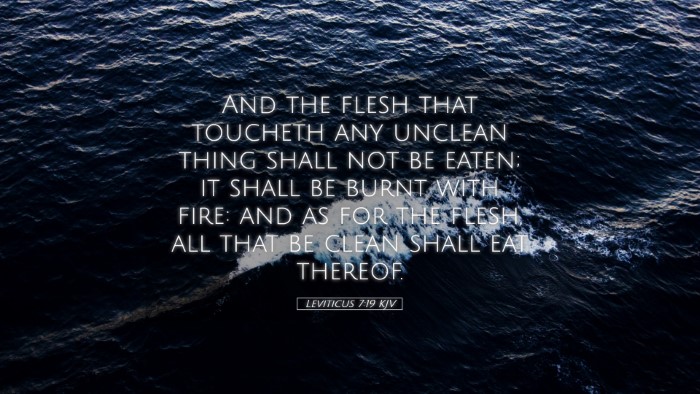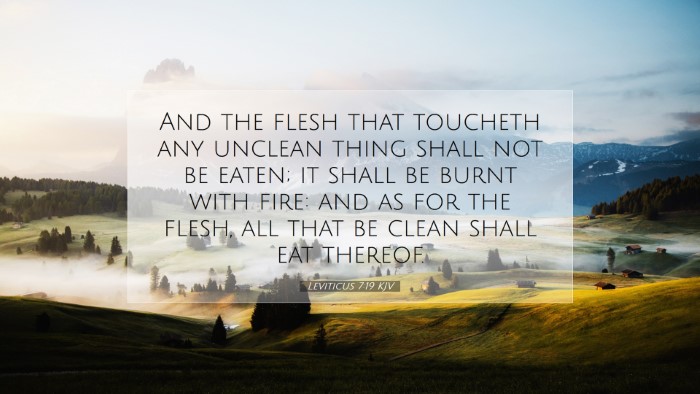Commentary on Leviticus 7:19
Leviticus 7:19 states: "And the flesh that toucheth any unclean thing shall not be eaten; it shall be burnt with fire: and as for the flesh, all that be clean shall eat thereof." This passage provides essential insights into the broader themes of holiness, cleanliness, and the covenant relationship between God and Israel.
Exegesis of Leviticus 7:19
This verse is part of the larger context concerning the laws of sacrifices. The stipulation concerning unclean things reflects the holiness expected of the people of God. The instructions provided here can be understood in several significant ways.
The Importance of Cleanliness
According to Matthew Henry, this verse emphasizes the strict regulations regarding ceremonial cleanliness. He notes the seriousness with which God instructs His people to maintain their purity, as it represents a broader spiritual condition. In other words, the directive underscores the importance of being set apart for God’s holiness.
Burnt with Fire
Albert Barnes elaborates on the necessity of burning the flesh that has come into contact with anything unclean. He observes that this act symbolizes the rejection of what is tainted or impure, reinforcing the idea that God's people should distance themselves from all that defiles. This image is potent, pointing to the ongoing need for believers to consider what they allow into their lives spiritually.
Communion with God
Adam Clarke provides further insights on the communal aspects of the sacrifices. He indicates that while unclean flesh must be burned, clean flesh can be consumed by the priest and the worshippers. This reflects the intimate relationship they have with God, as partaking in the sacrifice symbolizes communion with Him. Clarke's perspective considers the social and spiritual dimensions of these regulations.
Theological Implications
Matthew Henry delves into the theological implications of this verse by drawing parallels to the New Testament. He highlights that Christians are called to maintain purity, drawing a connection to the teachings of Jesus, who emphasized inner holiness over mere outward observance. This understanding carries significant weight for pastors and theologians when discussing how the Old Testament laws inform Christian ethics.
Application for Believers
From the discussions by both Albert Barnes and Adam Clarke, a crucial takeaway emerges regarding the application of these ancient laws. They remind contemporary believers that the disciplines surrounding holiness are not obsolete but rather analogous to the exhortation found in the epistles. They encourage believers to engage in self-examination and to ensure that their lives reflect the purity they are called to embody.
Practical Observations
- Self-Examination: The call to cleanliness invites regular self-reflection and repentance, vital for personal spiritual growth.
- Community Standards: The communal aspect of sacrifices reminds the church of its collective responsibility to uphold standards of holiness.
- God's Nature: Understanding the holiness of God enhances the fear and reverence due to Him, essential for genuine worship.
Conclusion
Leviticus 7:19 serves as a stark reminder of the implications of holiness within the community of faith. The burning of unclean flesh symbolizes the necessity of maintaining purity and rejecting that which defiles. The commentary from Matthew Henry, Albert Barnes, and Adam Clarke illuminates how these ancient instructions resonate with the call for purity and righteousness in the lives of modern believers. As pastors, students, and theologians delve into this text, it can serve as a foundational passage, highlighting God's call to holiness and the importance of a spiritual community dedicated to living out that calling.


